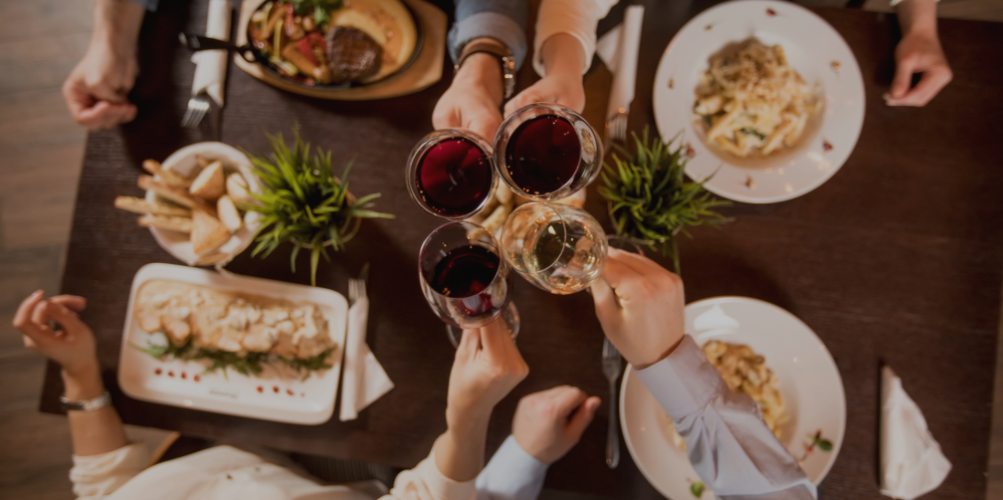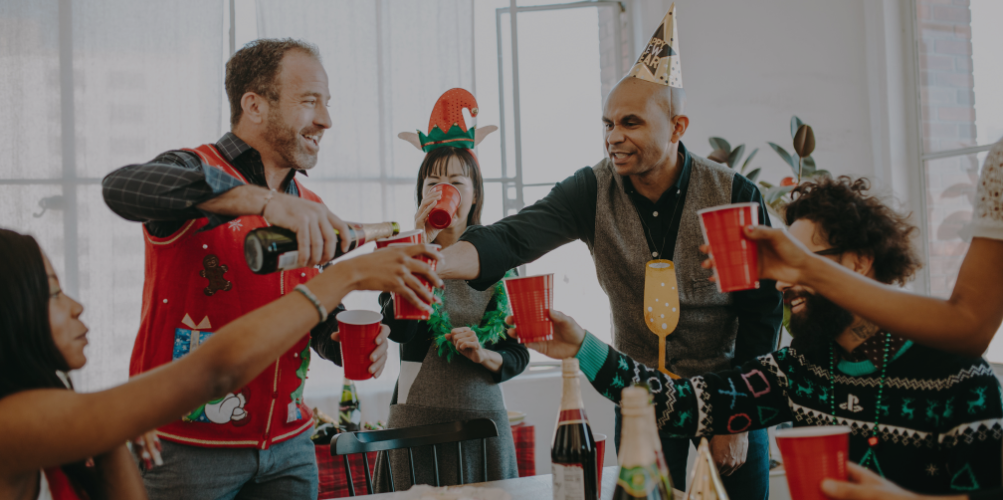Giving Thanks: The Power of Mindfulness in Recovery
Because of the rush around the holiday season, we often forget that Thanksgiving is not just about...
.png)
For many, rather than being a season of gladness and hope, the holidays are filled with grief and anxiety. The holidays can be a very stressful time, which can cause people to lean on their destructive coping mechanisms, such as indulging in alcohol.
With the holiday season rapidly approaching, let’s look at some ways you can navigate the holidays in recovery, and how you can support a loved one in recovery during the holidays.
The holidays come with their own specific set of triggers, which can increase the desire for a drink. Here are a few common triggers that people in recovery experience during the holiday season.

Whether it’s happy stress or not, there is no denying that the holidays can be stressful. Getting family members together, cooking food, making plans can all be stressful activities.
The holidays also come with a lot of pressure to experience happiness and make others happy, buying the perfect gifts, having the perfect meal, etc.
The holidays can be one of the most sad and lonely times of the year. If you have experienced a loss, or are going through a hard time, the holidays can highlight these difficult emotions.
Alcohol is especially prevalent around the holiday season. People use alcohol to celebrate, and it can be difficult to abstain while watching other people enjoy it.
The holidays are one of the most riskiest times for relapse, because of the triggers associated with the holiday season. Here are a few things you can do in order to reduce your risk of relapse over the holidays.
Continue attending your regularly scheduled therapy appointments, recreational activities, meal times, sleep times, etc. A big contributing factor to relapsing during the holidays is that the routine structure is no longer present. Try to keep as much sense of normalcy as you can over the holidays.
Have a pre-planned response for when someone offers you a drink at a holiday event. It’s also a good idea to have a non-alcoholic beverage with you at these types of events, so that you don’t feel as left out that everyone else is drinking something.
Acknowledge what is triggering you, and if possible, take a step back from the situation. If you realize that holiday parties are too triggering for you, don’t attend any more. If a specific family member is triggering you, try to maintain your distance from them, or set a very clear boundary with them.

Check in with yourself often, and ask yourself what you need physically, mentally, and emotionally. Give yourself space to relax, spend time with yourself and treat yourself, and ensure that you are getting enough sleep and eating properly.
It is only when your own cup is full that you can begin to give to other people.
Try to surround yourself with as much support as possible during the holiday season. This may mean spending more time with close friends and family members, or being more intentional about attending recovery meetings or therapy sessions regularly.
It’s an incredible thing that your loved one is choosing to abstain from alcohol this holiday season. However, achieving this is much easier said than done, and they will probably need more support than they anticipate.
Here are a few ways that you can help support your loved one’s recovery during the holidays.
Don’t overwhelm your loved one with stressful events and plans that they will have to work around. Be considerate of their schedule, and don’t expect them to attend every holiday event.
Your loved one may agree to attend a holiday event, but only for a certain amount of time, or only with certain people, or they may choose not to attend at all. Respect their decisions, and don’t try to push them to do differently. They understand how much they can handle better than you can.

f your family member is willing to have a conversation about it, try to discuss what their triggers are beforehand so you can be best equipped to help them manage them.
For example, if they are very triggered at events where alcohol is served, opt for non-alcoholic beverages at any holiday events.
Many people in recovery use the holidays as an excuse to not attend their regularly scheduled recovery meetings; however, this time of year is the most crucial time to attend meetings. Being with others in recovery or talking with a therapist or sponsor can be greatly beneficial.
Although family members can offer support in different ways, there is no one who understands what they are going through like people who are also in recovery.
Ask your loved one what you can do to make them feel more comfortable, or to ease any of their stress. Let them know that you are there for them, and they can talk to you whenever they need support.
Although it’s important to offer support wherever possible, know that you are not responsible for your loved one’s recovery. You can only do what you can to help keep them on the recovery path, but it is not your fault if they experience a slip or a relapse.
If you or a loved one needs support during the holiday season, Aquila Recovery is here to help. We offer intensive outpatient programs and outpatient programs for alcohol recovery.
We also offer support for family members who are looking to better navigate how to offer support to their loved one in recovery.
To learn more about our programs, or for specific questions about addiction recovery, speak to our addiction specialists.
Because of the rush around the holiday season, we often forget that Thanksgiving is not just about...
Young adults often face unique challenges when they begin a life in college. Entering a new system,...
We know that you're focused on your recovery. Staying focused, however, can be a struggle if you're...